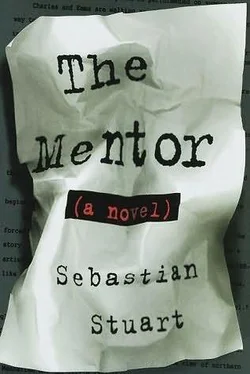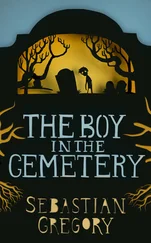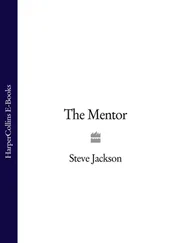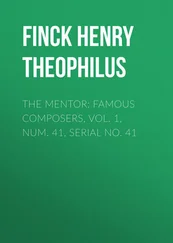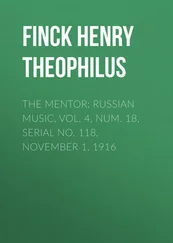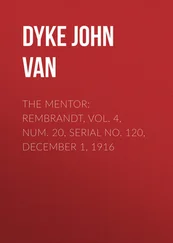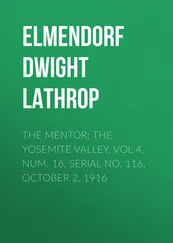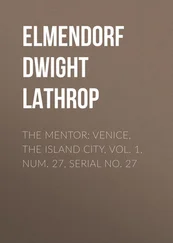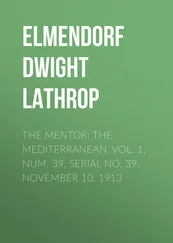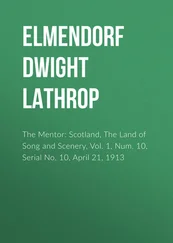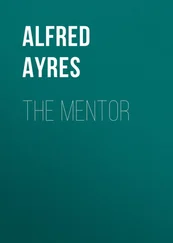Sebastian Stuart - The Mentor
Здесь есть возможность читать онлайн «Sebastian Stuart - The Mentor» весь текст электронной книги совершенно бесплатно (целиком полную версию без сокращений). В некоторых случаях можно слушать аудио, скачать через торрент в формате fb2 и присутствует краткое содержание. Жанр: Криминальный детектив, на английском языке. Описание произведения, (предисловие) а так же отзывы посетителей доступны на портале библиотеки ЛибКат.
- Название:The Mentor
- Автор:
- Жанр:
- Год:неизвестен
- ISBN:нет данных
- Рейтинг книги:3 / 5. Голосов: 1
-
Избранное:Добавить в избранное
- Отзывы:
-
Ваша оценка:
- 60
- 1
- 2
- 3
- 4
- 5
The Mentor: краткое содержание, описание и аннотация
Предлагаем к чтению аннотацию, описание, краткое содержание или предисловие (зависит от того, что написал сам автор книги «The Mentor»). Если вы не нашли необходимую информацию о книге — напишите в комментариях, мы постараемся отыскать её.
The Mentor — читать онлайн бесплатно полную книгу (весь текст) целиком
Ниже представлен текст книги, разбитый по страницам. Система сохранения места последней прочитанной страницы, позволяет с удобством читать онлайн бесплатно книгу «The Mentor», без необходимости каждый раз заново искать на чём Вы остановились. Поставьте закладку, и сможете в любой момент перейти на страницу, на которой закончили чтение.
Интервал:
Закладка:
The Lower East Side, that city of ancient tenements, is a foreign land to Charles. As they walk down the battered streets, past old Jews, young Hispanics, and downscale artists, Charles is reawakened to what a huge and wondrous city he lives in. Emma leads him to a bare-bones Cuban restaurant tucked away on a teeming corner. They take a window booth and she orders for the two of them: avocado salad, black beans, yellow rice, and chicken that’s been cooked in a chunky tomato-onion sauce until it falls from the bone, as tender as love. After savoring the earthy food, they sit and look out the window, slowly eating dessert-silky flan with a burnt-sugar bottom.
Charles feels that he’s in a different world somehow, a place where he isn’t Charles Davis, where he shucks that mantle, that burden, and is just another face on the street, just a man. He loves being led into this new land, eating this simple food. He can’t remember the last time he’s felt so unencumbered, as if he might be getting back to something important. He thinks of Portia, of how much she would enjoy this neighborhood, this restaurant, and, he ventures, this young woman.
“I’d forgotten how satisfying rice and beans could be,” Charles says.
Emma smiles at him and, in the glow from the streetlight coming in through the window, he notes again what lovely lips she has, how sensual the lower half of her face is. There’s even the hint of a pout about her mouth, a pout that the rest of her face isn’t sure what to do with.
“I used to come to places like this when I first moved to New York and had about fifty cents to my name. Funny how you work your ass off until you’ve priced yourself out of the things you really love,” Charles says.
“Sometimes I sit here for hours, just looking out the window. I find it soothing.”
“That’s the first time I’ve heard the Lower East Side described as soothing.”
“It’s the anonymity. I love the feeling in New York of being invisible. Small towns can suck the life out of you.”
“So can big towns. Be careful, little girl.”
“But don’t you find it stimulating? As a writer? I mean, look at those two.”
Charles follows Emma’s gaze out the window to a storefront across the street where a raven-haired middle-aged woman in stretch pants and flip-flops is exchanging heated words with a much younger man with slicked-back hair and a gold stud in one ear. Charles watches them for a moment.
“A lonely woman and her Don Juan son,” he says. “He hasn’t been home in three days. She’s telling him she’s been tearing her hair out, lighting candles at church. What she really means is that she’s insane with jealousy that some other woman is more important to him than she is.”
Emma considers Charles’s words for a moment, not taking her eyes off the couple. “I think they’re lovers,” she says.
“You do?”
“I think she’s married to a seventy-year-old grocer who brought her here from Santo Domingo. She has a Pekingese and a pet hen she keeps in a cage in the kitchen. One morning she was walking the dog in the rain and decided to take him around the block again even though her umbrella was broken and her hair was getting wet. The young man was coming out of a coffee shop-the one he eats at every morning, even though the food is bad.”
“Why does he keep eating there?” he asks.
“He’s a creature of habit. There she was with the Pekingese, her hair plastered down with the rain. Something about her touched his heart-the shoes she was wearing, the way one spoke of her umbrella was bent out of shape. He knelt on the sidewalk and petted the dog. Rain soaked through his T-shirt. He looked up at her and he was lost.”
“Why lost?”
“Because he knows he’ll never forget her. On his deathbed it’s her face he’ll see. He wants her to leave her husband, but she can’t. He’s seventy, he brought her here, there’s the hen. She’s telling her lover to leave her, even though every drop of blood in her body wants him.”
Charles looks at the couple and sees what Emma sees.
“Is there a happy ending?” he asks.
“He’ll leave her. His pride. He’ll marry a younger woman, move to Brooklyn; they’ll have babies. One day he’ll be in the city. He’ll see her across the street, walking her dog. Her hair will be gray, but he won’t notice. His heart will stop. It might start to rain.”
Emma has lost all self-consciousness, is radiant in the dim light of the coffee shop. Her story over, she’s quiet for a moment. Across the street, the couple is gone. Emma turns and looks at Charles, as if she is stepping out of another world. She is suddenly aware of herself again, and her small frame stiffens.
“I want to see where you live,” he says.
18
In Queens, Anne lies with her robe open on the hospital examining table, wondering why she doesn’t feel more vulnerable. The doctor, young and intense, has injected the local anesthetic into her belly, and she can feel the area growing numb. The vial containing Charles’s blood sits on the nearby countertop. How dark and thick blood is.
“Are you all right, Mrs. Brody?” the doctor asks.
“Fine, thank you.”
“I’m going to put some petroleum jelly on your stomach in preparation for the ultrasound,” he says.
Anne feels the texture of the cold jelly as the nurse spreads it. Then the doctor begins to run a metal wand over her stomach. Anne looks over at the monitor and sees the embryonic life growing inside her. She reaches out and squeezes the nurse’s hand. She’s immediately embarrassed by her gesture and withdraws her hand. The nurse pats Anne’s arm.
The nurse takes the ultrasound wand from the doctor and he picks up a long needle.
“Please,” Anne says. “Be careful.”
The doctor gives her a calm smile. Dr. Halpern has assured her of his expertise. Anne determines right then and there to stick with Dr. Halpern if she decides to have the baby. You don’t have to be rich to get good medical care, she thinks, just lucky.
She turns her head away as he inserts the needle into her stomach.
“All done,” the doctor says.
It’s dark when Anne walks out onto the sidewalk and around the corner to the brightly lit commercial street. Evening shoppers are out in force and she joins the throng. She has a sudden craving for peanut butter cookies and she ducks into the nearest grocery and buys two packs, one of which she tears open and begins to devour even as she waits in line to pay.
19
Charles and Emma walk under the cloudy night sky, toward Chinatown.
“Don’t expect much,” she says as they reach the old brick building. Emma unlocks the front door and begins to climb the stairs; Charles follows close behind. Her anxiety increases with each step. Stay calm, you’ve come this far. Stay calm.
Emma opens the door and Charles follows her inside. The restaurant’s neon sign bathes the room in a dim crimson glow. She turns on a light and stands expectantly while Charles looks around. The Saturdays she’s spent combing the thrift shops and sidewalks of lower Manhattan have yielded eclectic treasures. The fruit crates cribbed from the Chinese grocer are filled with thirdhand books. A fringed shawl is draped over her bed. There’s a Persian rug worn through in several places, a lamp in the shape of three puppies, an old manual typewriter, a wedding photo of a handsome black couple circa 1910. Her plates and glasses are mismatched and colorful. Until now Emma was proud of her apartment, but suddenly-with Charles Davis there-it looks shabby, depressing, a place where a crazy girl trying to pass for normal might live.
Emma drops her coat and bag on the bed and goes to the stove. “Can I make you a cup of tea?” She can feel him behind her, standing there, judging her, seeing her for who she is. She fills the kettle with water. The first patter of raindrops sounds against the roof above them. She turns and he’s staring at her.
Читать дальшеИнтервал:
Закладка:
Похожие книги на «The Mentor»
Представляем Вашему вниманию похожие книги на «The Mentor» списком для выбора. Мы отобрали схожую по названию и смыслу литературу в надежде предоставить читателям больше вариантов отыскать новые, интересные, ещё непрочитанные произведения.
Обсуждение, отзывы о книге «The Mentor» и просто собственные мнения читателей. Оставьте ваши комментарии, напишите, что Вы думаете о произведении, его смысле или главных героях. Укажите что конкретно понравилось, а что нет, и почему Вы так считаете.
